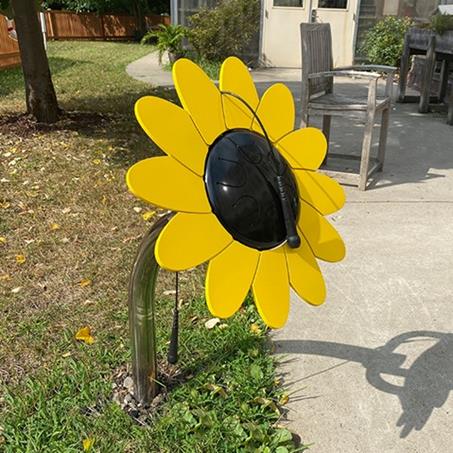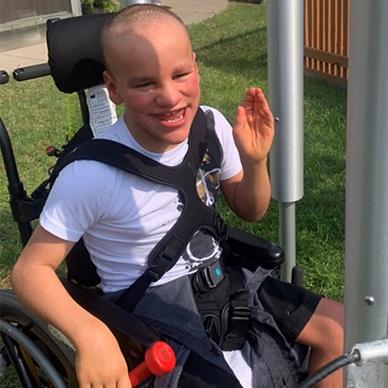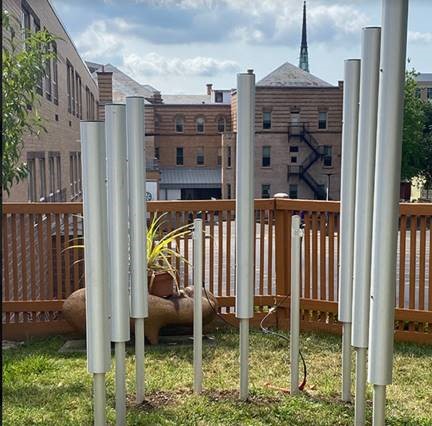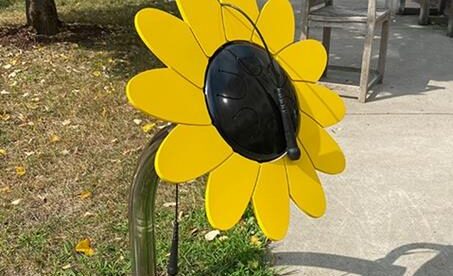Western Pennsylvania School for Blind Children Uses Percussion Play And Music Therapy To Benefit People Suffering From Sensory Impairment
To mark Deafblind Awareness Week starting on the 26th June, Percussion Play is highlighting how music therapy can help those suffering from a sensory impairment, such as those who are deaf or blind or have partial visual or hearing impairments.
Music has long been used to help heal, transcending nations and cultures; this is why music is often referred to as the universal language. Music therapy benefits cognitive, emotional, and social issues as well as the physical needs of people. It has proven to be an effective way to help alleviate symptoms and provide a sense of inner calm to patients.
A School in Western Pennsylvania is using music therapy to enhance the lives of its students- all through sound and vibration. The Western Pennsylvania School for Blind Children , which has over 190 students, an adult day program for graduates of the school, as well as a child care center for the employees of the school, has created outdoor music areas for everyone to enjoy with Percussion Play instruments,
A generous donor, Ray Wojszynski, funds a program named the Creative Arts Series, where performers visit the school and introduce music and the arts to students. Mr. Wojszynski has donated a range of outdoor musical instruments to give current and future students something tangible, lasting, and permanent to enjoy.
The instruments chosen by the school and Sue Wiedder, Director of Development and Communications, include the Harmony Flowers , the Petal Drum , and the Tubular Bells which are a firm favorite. All the instruments are perfect for the students who use wheelchairs (75% of students use one for mobility) based on the varying heights of all the selected instruments.

Sue Wiedder comments on how they chose the instruments – “The students that attend our school are visually impaired or blind with additional medial complexities and physical and cognitive disabilities. Some of the children have residual vision, but all are legally blind. In addition, we do have students that are non-verbal and rely on adaptive communication devices to express their thoughts and feelings. Therefore, we had to take our time deciding which instruments would be best for our special population of students. We originally had some items chosen, but when I talked to Robin, the Co-Founder of Percussion Play, he told me about the Tubular Bells and a story of how a student who was deaf and blind enjoyed ringing the bells because they could feel the vibrations of the chimes.”
The school has 5.5 acres of land within an urban city and decided to create multiple areas for the students to play with the instruments. All of the instruments were installed by the school’s buildings and grounds staff after the lockdowns due to COVID were finished.
Sue Wiedder says, “Each student has a whole educational team including a teacher of the visually impaired, speech and language pathologist, physical and occupational therapists, orientation and mobility specialists, a school psychologist and case managers. All of the teachers can see how much they have enhanced our students’ lives.”


Kelly Welsh, Certified Teacher of the Visually Impaired (TVI) at the school, says about one of her students – “Isaiah is primarily a tactile learner meaning he accesses his environment and surroundings by touch. He does have some light perception in one eye, hence him soaking up the sun in one of the pictures. Due to his profound hearing and visual loss, he needs to use his other senses such as touch and smell, to better understand what is going on around him. Within the classroom, he uses sign language for core vocabulary words such as eat, drink, go, more, finished. He uses tactile symbols and physical prompts to help him throughout his school day. As for the Tubular Bells, Isaiah is probably feeling the movement of the bells as they are played as well as the vibrations that come from striking the bells. Isaiah loves movement and gross motor activities so it’s not a surprise that he enjoyed the bells as much as he did.”
Jody Ashfield, Co-Founder, and CEO of Percussion Play, says, “This project is a great example of how music can be enjoyed by everyone, including people who have sensory impairments. The vibrations that they make are all part of the experience of music. We also design our instruments to be bright and colorful, which particularly helps the students at the Western PA School for Blind Children.”
Percussion Play creates a range of beautiful outdoor musical instruments played across the world in schools, libraries, parks, hospitals, and senior living communities.
You can read more research on the benefits of music on the Percussion Play website.


Leave a comment